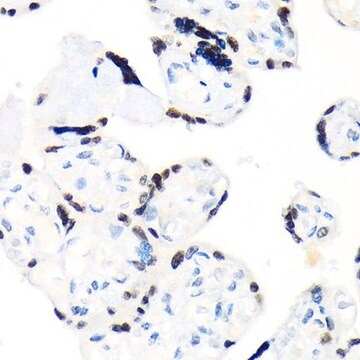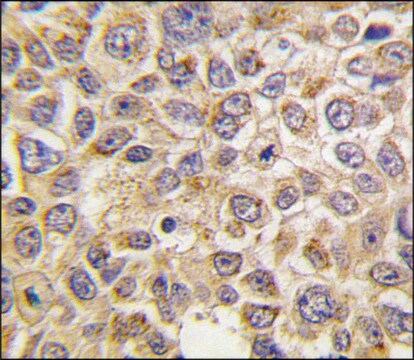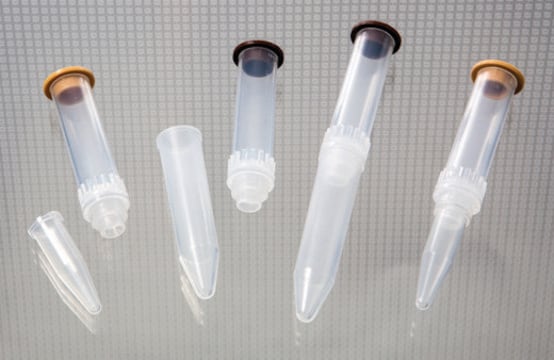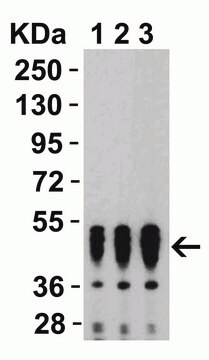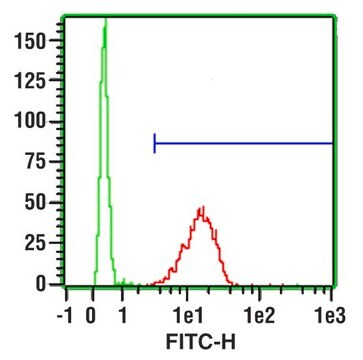SAB1300127
Anti-PACSIN2 (C-term) antibody produced in rabbit
IgG fraction of antiserum, buffered aqueous solution
Synonym(s):
Anti-Protein kinase C and casein kinase substrate in neurons protein 2
About This Item
Recommended Products
biological source
rabbit
conjugate
unconjugated
antibody form
IgG fraction of antiserum
antibody product type
primary antibodies
clone
polyclonal
form
buffered aqueous solution
species reactivity
mouse, human
technique(s)
immunohistochemistry: 1:50-1:100
indirect ELISA: 1:1000
indirect immunofluorescence: 1:10-1:50
western blot: 1:100-1:500
NCBI accession no.
UniProt accession no.
shipped in
dry ice
storage temp.
−20°C
target post-translational modification
unmodified
Gene Information
human ... PACSIN2(11252)
General description
Immunogen
This antibody is generated from rabbits immunized with a KLH conjugated synthetic peptide selected from the C-terminal region of human PACSIN2.
Application
Biochem/physiol Actions
Physical form
Disclaimer
Not finding the right product?
Try our Product Selector Tool.
Storage Class Code
10 - Combustible liquids
WGK
nwg
Flash Point(F)
Not applicable
Flash Point(C)
Not applicable
Certificates of Analysis (COA)
Search for Certificates of Analysis (COA) by entering the products Lot/Batch Number. Lot and Batch Numbers can be found on a product’s label following the words ‘Lot’ or ‘Batch’.
Already Own This Product?
Find documentation for the products that you have recently purchased in the Document Library.
Our team of scientists has experience in all areas of research including Life Science, Material Science, Chemical Synthesis, Chromatography, Analytical and many others.
Contact Technical Service
